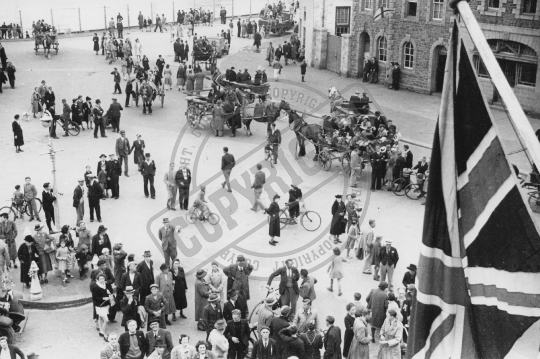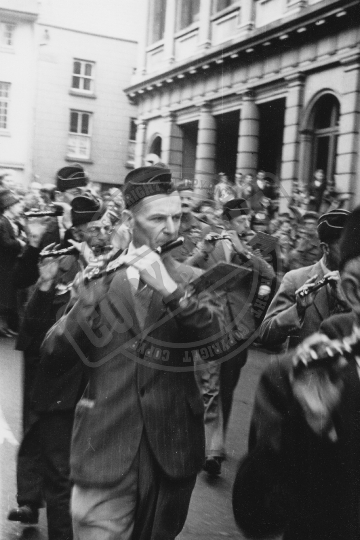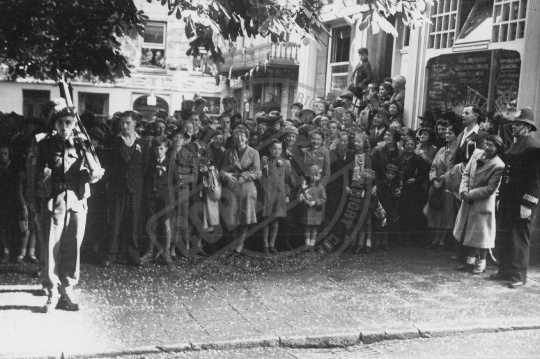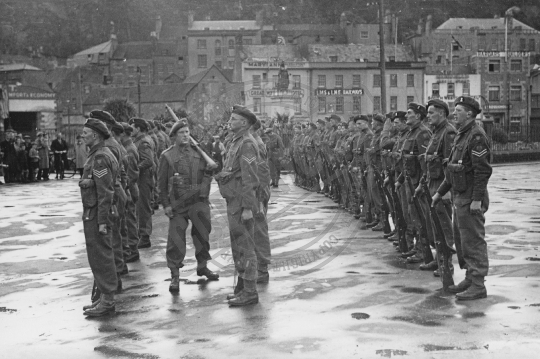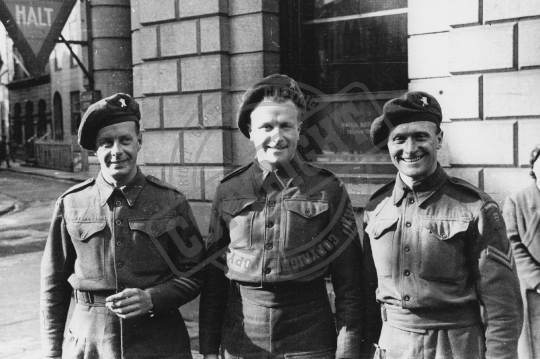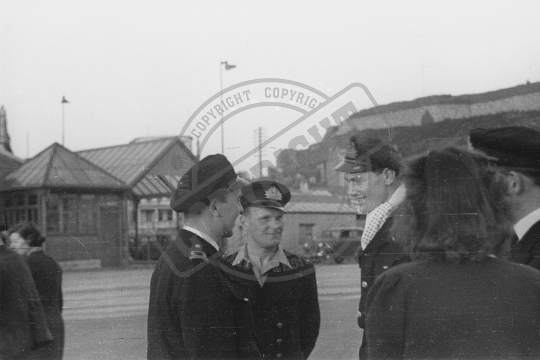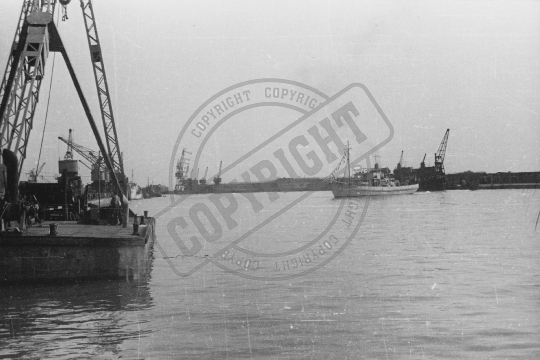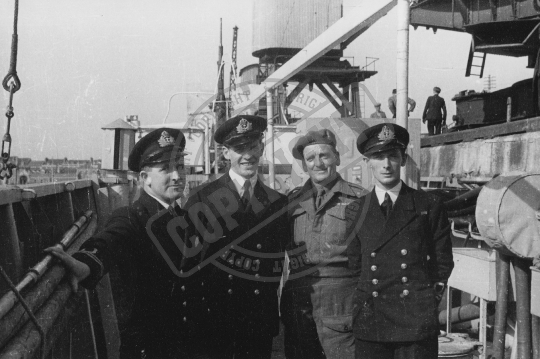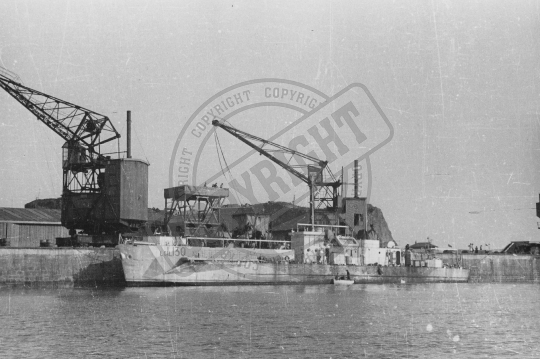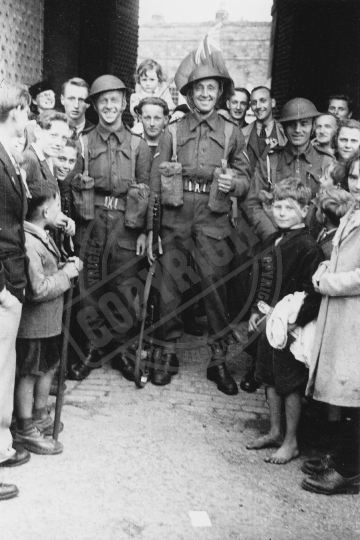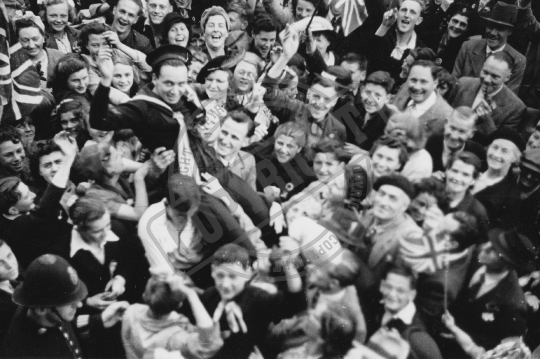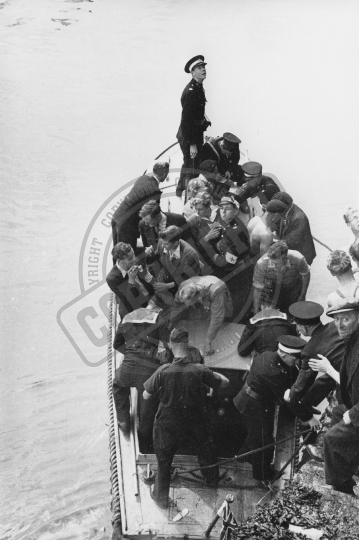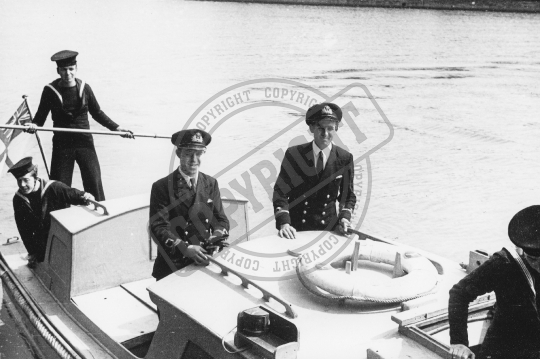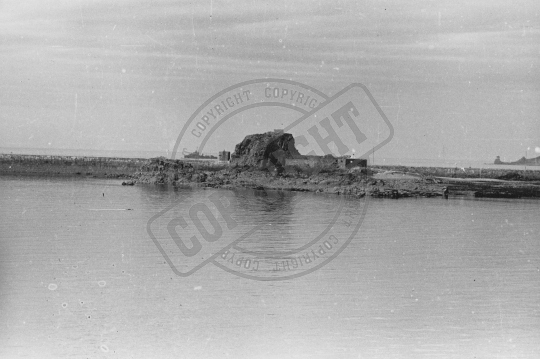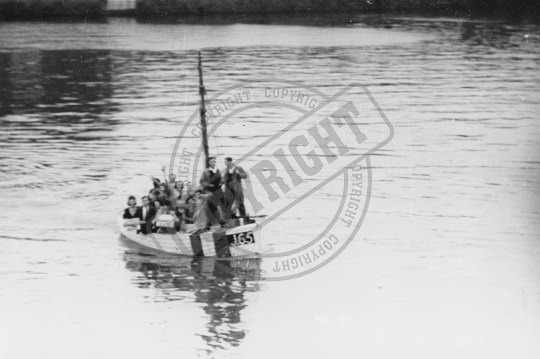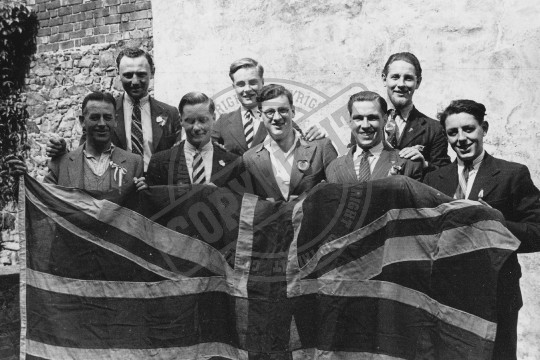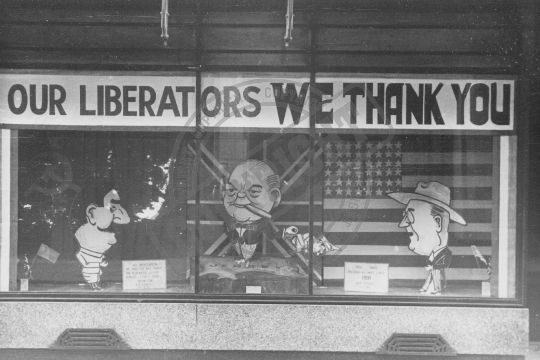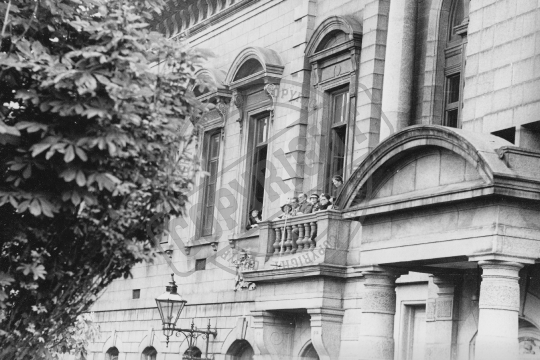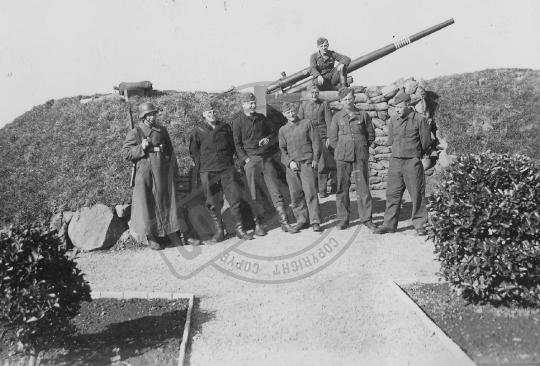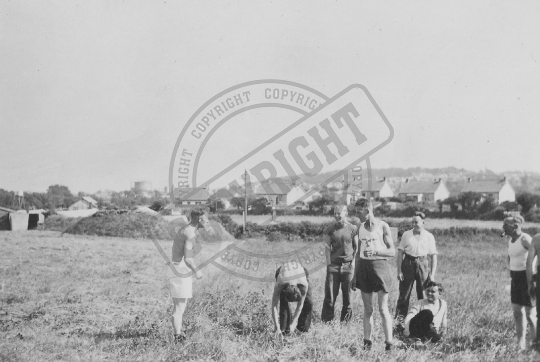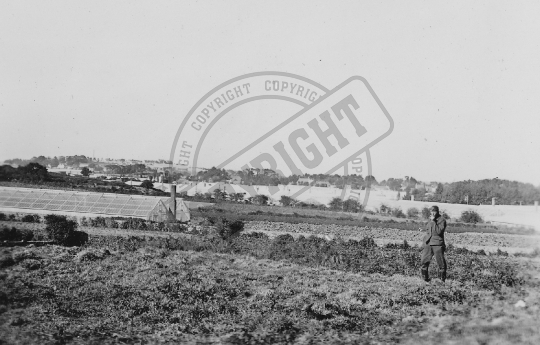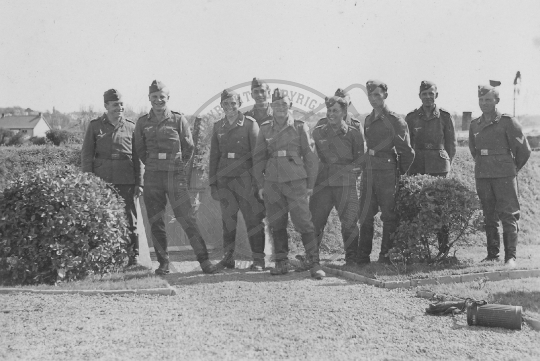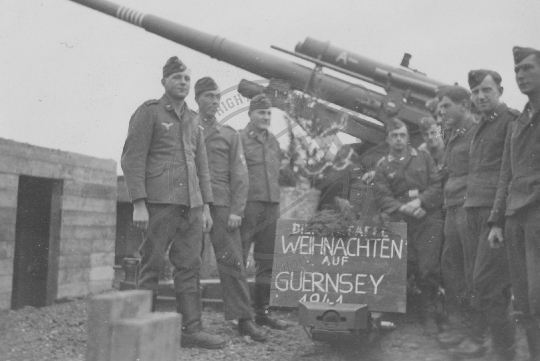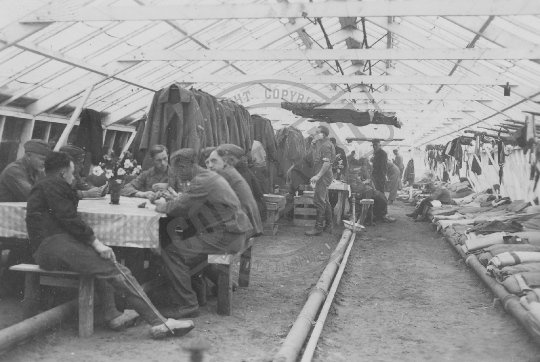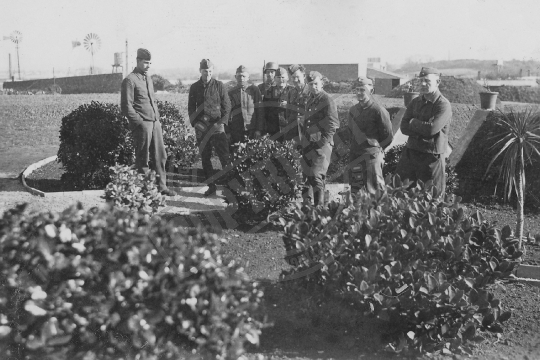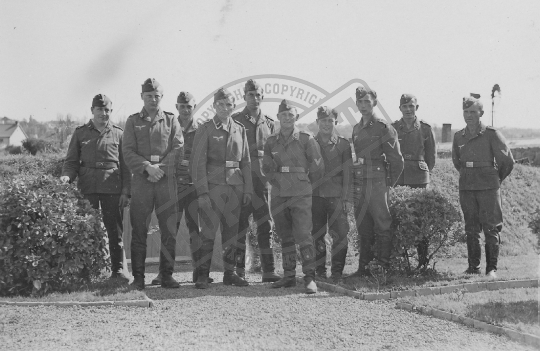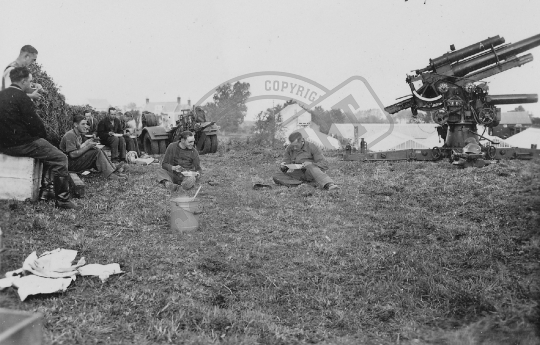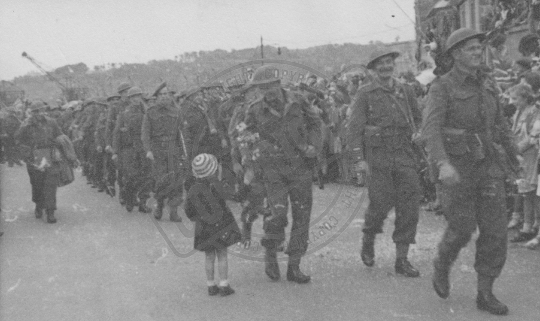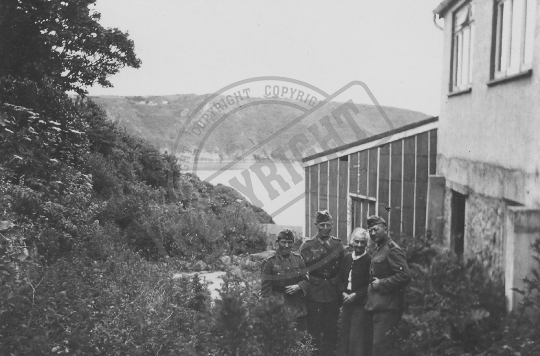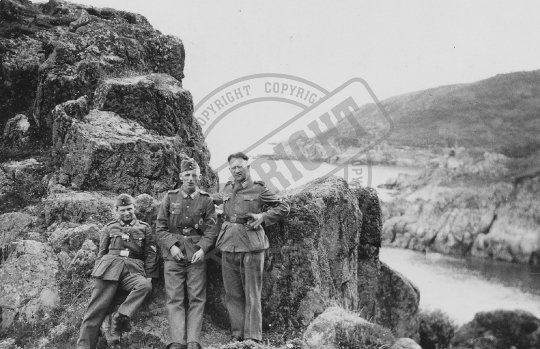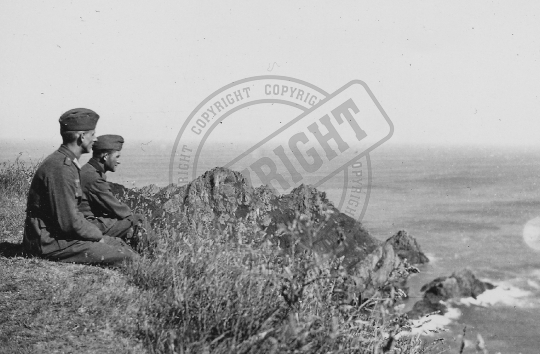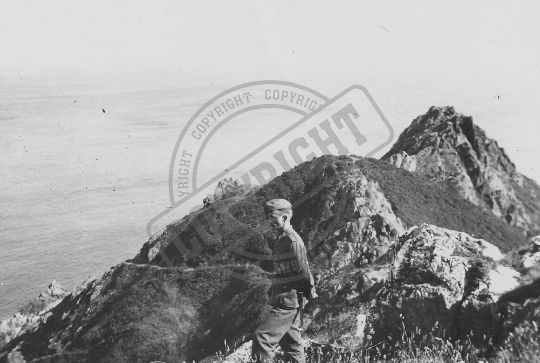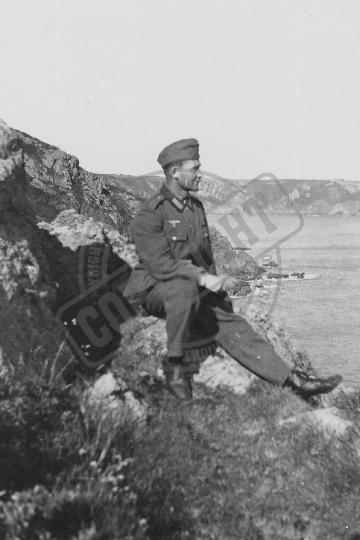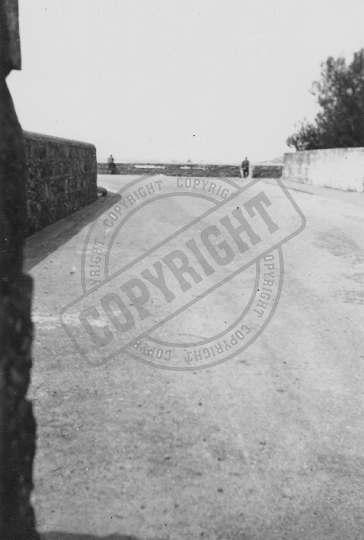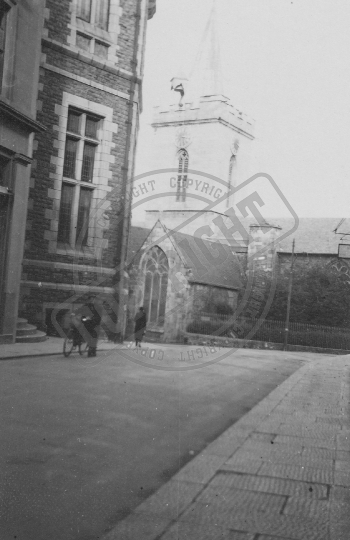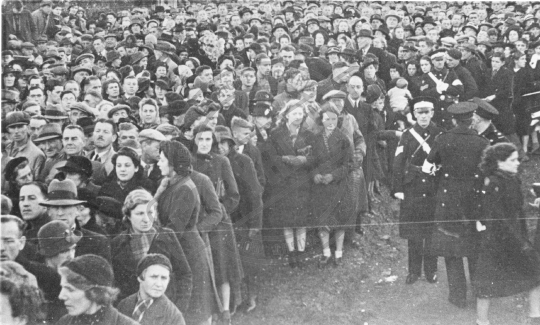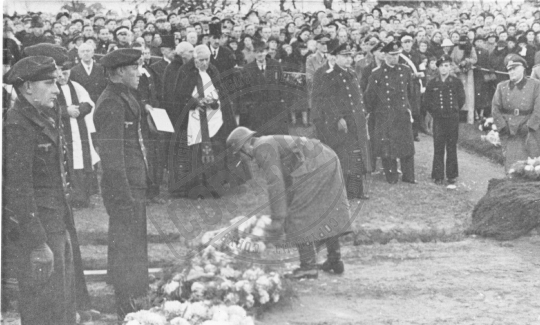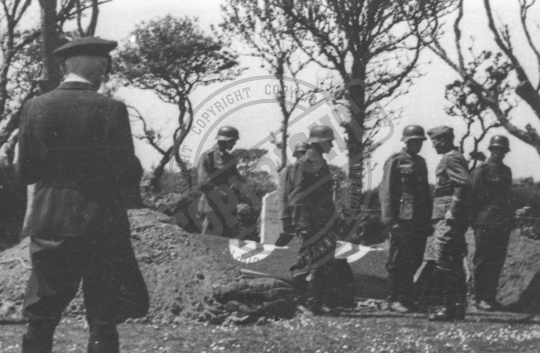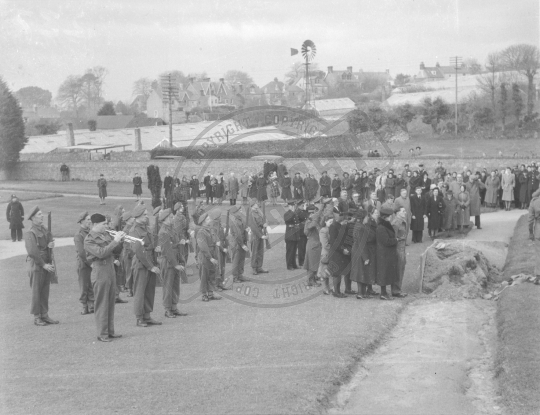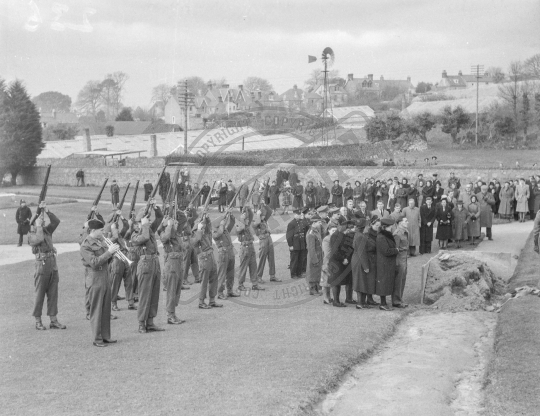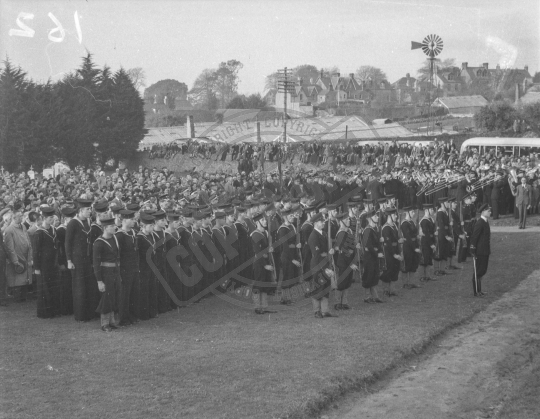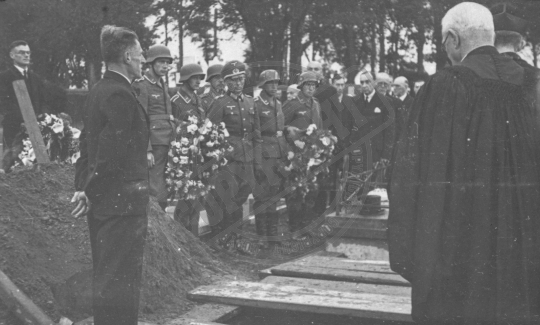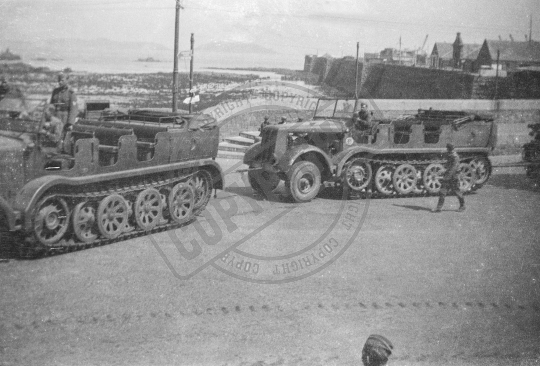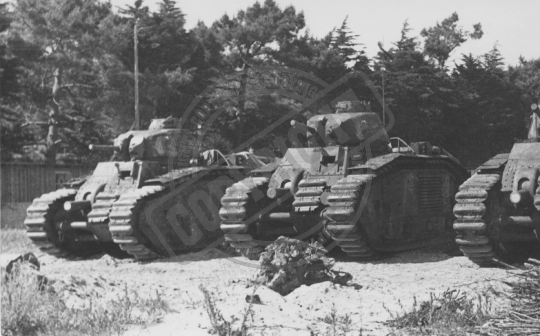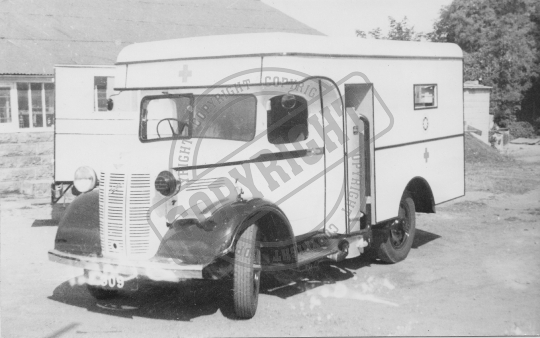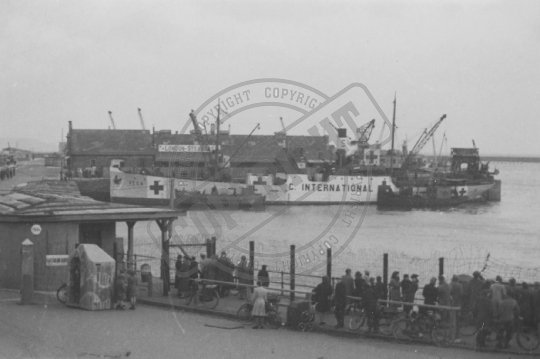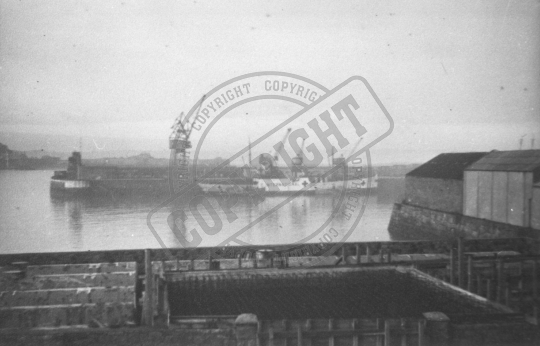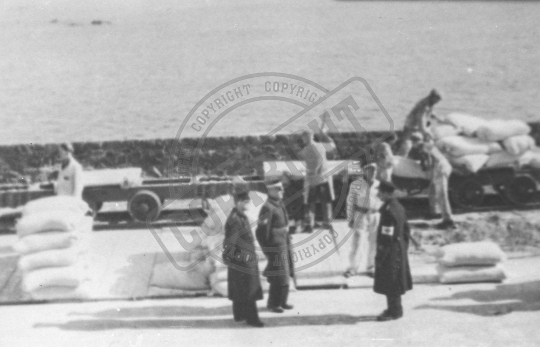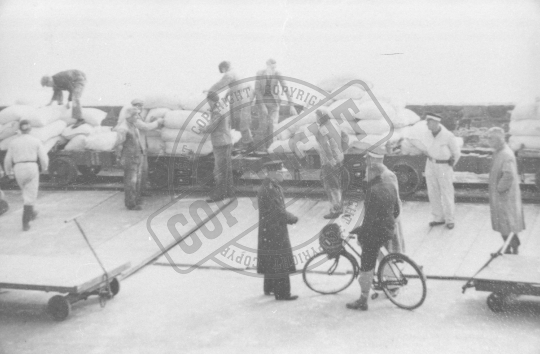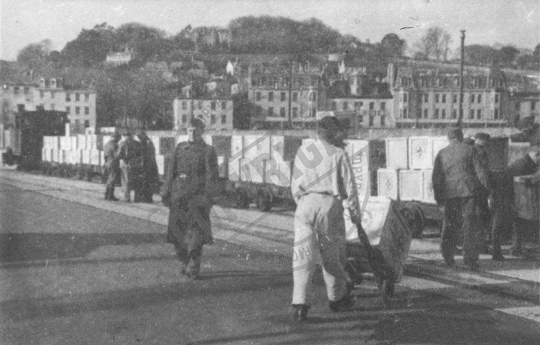Results (222)
CIMM_0072
Jersey Thursday 10th May 1945. Crowds of islanders lingered around the Weighbridge still excited from recent historic events and exchange pleasantries with the British troops sitting on the Pomme d’Or Hotel’s balcony.
CIMM_0069
Jersey Thursday 10th May 1945. After the speeches the St James Boys Brigade Band, headed by Dae Donavan their drum-major, struck up a rousing march and marched out of the Royal Square followed by Lt-Col Robinson and the troops that had formed the Guard of Honour.
CIMM_0067
Jersey Thursday 10th May 1945. The section of crowd at the Pierson Hotel end of the Royal Square wait eagerly for the ceremony to begin.
CIMM_0064
The Guard of honour for Hoisting the Flag Ceremony on the morning of Thursday 10th May 1945 are inspected by the CSM on the Weighbridge in front of the Pomme d’Or Hotel, which will become Force 135 Tactical Headquarters.
CIMM_0062
Jersey Thursday 10th May 1945. Three Jersey lads, Private Raymond Ahier, Sergeant Winter de Gruchy, and Corporal Alex Mangan, serving with the 11th (RMIJ) Battalion, the Hampshire Regiment, in Broad Street, Jersey.
CIMM_0059
Jersey Liberation Wednesday 9th May 1945. Royal Navy officers from the LCI(L) 130 and minesweepers exchange details at the top of the New North Quay, St Helier Harbour, whilst a Jersey girl listens eagerly to their conversation.
CIMM_0057
Jersey Liberation Wednesday 9th May 1945. The HM Motor Minesweeper FY PT 250, commanded by Lt. Leslie Jackson, RNVR, of the 142nd Minesweeping Flotilla manoeuvring in St Helier Harbour.
CIMM_0054
Jersey Liberation Wednesday 9th May 1945. Officers of LCI(L) 130 with a Royal Engineer Major (third left) from the 'Omelette’ Advance Party. L to R; First Lieutenant (name unknown), RNVR; Sub.Lt. Jimmy Cooper, RNVR; and Commanding Officer, Lt Charles Sanders, RNVR.
CIMM_0053
The LCI(L) 130 moored alongside the New North Quay, St. Helier Harbour, Jersey. Almost immediately the main 'Omelette’ advance party of some 200 men began to land at 5pm on Wednesday 9th May.
CIMM_0051
Three British soldiers guard the main gate at Fort Regent to prevent Jersey islanders from entering. John Langlois is the small boy on someone’s shoulders waving the Red Ensign, son of Fred and Mary Langlois. Third from left is 16-year-old Dennis Perrier.
CIMM_0050
A Royal Navy rating from HMS Beagle’s launch is also given a hero’s welcome by a group of Jersey islanders outside the Harbour Office at the Weighbridge.
CIMM_0047
The launch from HMS Beagle was swamped with autograph hunters at the end of the Albert Pier, Jersey. The sailor's supply of cigarettes rapidly diminished.
CIMM_0045
A launch from HMS Beagle with two Royal Navy officers and four ratings on board prepares to tie up at the end of the Albert Pier, Jersey.
CIMM_0042
View looking across St. Aubin’s bay, Jersey from St. Helier Harbour. HMS Beagle can be seen at anchor behind Elizabeth Castle breakwater. One of the two square bunkers housing the firing points for the electrically detonated mines laid in the approaches to the harbour can be seen at the root of the castle breakwater.
CIMM_0040
One of the small boats that had made the trip to HMS Beagle anchored in St Aubin’s Bay, Jersey. On returning to St Helier Harbour two on board are holding up copies of the previous day’s newspapers announcing VE-Day, thrown to them by sailors on board the destroyer.
CIMM_0039
Jersey ex-political prisoners taken shortly after their release from the Newgate Street Prison. Left to Right: Bunny O’Neil, Mr. Rondel, Charles Gruchy, Martin Le Cornu, Hugh Le Cloche, Basil Thornton, the Dutchman Siebe Kosta, and John Bisson.
CIMM_0038
The RM Stores in King Street, St. Helier, Jersey featured the big three. Stalin, Churchill, and Roosevelt, with 'Winnie’, standing on a map of Jersey, holding up Hitler by the seat of his breeches.
CIMM_0037
Tuesday 8th May 1945, the Jersey Bailiff, Alexander Coutanche, had a microphone erected on the balcony of the Royal Court witness room, facing the Royal Square. After the Prime Minister’s speech he spoke from the balcony to the crowd.
SP_0048.jpg
The gun crew of Flak Batterie Kapellendorf located off Les Grandes Capelles in St Sampson. This battery of four 8.8cm Flak 18 guns which were used in an anti-aircraft role. This sequence of photographs were taken in December 1941. Note the kill markings on the gun barrel.
SP_0047.jpg
The gun crew of Flak Batterie Kapellendorf located off Les Grandes Capelles in St Sampson. This battery of four 8.8cm Flak 18 guns which were used in an anti-aircraft role. This sequence of photographs were taken in December 1941. Note the gas holders located at Le Bouet in the background.
SP_0046.jpg
Flak Batterie Kapellendorf located off Les Grandes Capelles in St Sampson. This battery of four 8.8cm Flak 18 guns which were used in an anti-aircraft role. This sequence of photographs were taken in December 1941.
SP_0045.jpg
The gun crew of Flak Batterie Kapellendorf located off Les Grandes Capelles in St Sampson. This battery of four 8.8cm Flak 18 guns which were used in an anti-aircraft role. This sequence of photographs were taken in December 1941.
SP_0043.jpg
The gun crew of Flak Batterie Kapellendorf located off Les Grandes Capelles in St Sampson. This battery of four 8.8cm Flak 18 guns which were used in an anti-aircraft role. This sequence of photographs were taken at Christmas 1941.
SP_0035.jpg
The gun crews of Flak Batterie Kapellendorf seen here inside a greenhouse which appears to also be the crews accommodation and rest area. Note the beds on the right and the uniforms hanging up to the left.
SP_0034.jpg
The gun crew of Flak Batterie Kapellendorf located off Les Grandes Capelles in St Sampson. This battery of four 8.8cm Flak 18 guns which were used in an anti-aircraft role. This sequence of photographs were taken in December 1941.
SP_0033.jpg
The gun crew of Flak Batterie Kapellendorf located off Les Grandes Capelles in St Sampson. This battery of four 8.8cm Flak 18 guns which were used in an anti-aircraft role. This sequence of photographs were taken in December 1941.
SP_0030.jpg
Flak Batterie Kapellendorf located off Les Grandes Capelles in St Sampson. This battery of four 8.8cm Flak 18 guns which were used in an anti-aircraft role. This sequence of photographs were taken in December 1941. Note the trailer for moving the gun in the background.
MT_0002
Marching past the former White Heart Hotel sited opposite the Weighbridge, a young girl presents a pose of flowers to one of Guernsey’s Liberators on the occasion of the islands freedom on 9 May 1945.
OA_102
German soldiers with a local resident at one of the properties alongside the road leading down to Moulin Huet Bay with Jerbourg headland and the beach of Petit Port in the distance.
OA_095
Enjoying a stroll around Guernsey’s southern cliffs a group of Germans stop for a rest near Moulin Huet by Dog and Lion Rocks with the small harbour at Saints Bay seen in the background.
OA_094
Two German soldiers stop to enjoy the views on the cliifs just west of Pointe De La Moye which can be seen in the background.
OA_093
A German soldier stands on the coastal footpath leading to Pointe De La Moye looking east towards Les Sommeilleuses.
OA_092
A German soldier relaxes on a rock outcrop sited on the coastal footpath leading to Pointe De La Moye with Icart headland in the background.
OA_091
Taken at Route de Cobo near Bouverie Lane looking towards Cobo Coast Road note, the white lines painted on the sea wall to aid drivers during the night in blackout conditions.
OA_088
At the foot of Fountain Street civilians are photographed going about their business, note the cyclist making their way up the road keeping to the right hand side.
TPL_00172
Funeral service for Royal Navy victims of HMS Charybdis and HMS Limbourne who were buried with full military honours at Le Foulon Cemetery.
TPL_00165
Funeral service for Royal Navy victims of HMS Charybdis and HMS Limbourne who were buried with full military honours at Le Foulon Cemetery.
TPL_00164
Two soldiers who were killed when clearing their own mines immediately after the occupation are buried in the cemetery near St Peters church in Sark.
TPL_00157
Military funeral held in Jersey for RAF Sergeants Dennis Charles Butlin and Abraham Holden which was attended by Bailiff Alexander Coutanche on 6th June 1943.
TPL_00381
German half-tracks were linked together and used to transport heavy loads such as the guns of Batterie Mirus. Seen here are at least three vehicles having exited the White Rock turning to ascend St Julians Avenue. Note the damage to the road surface in the forground.
TPL_00326
French Char bis B1 tanks used by the Germans awaiting shipment from Millbrook, Jersey to France 29th May 1945.
TPL_00323
This cut down furniture van was transformed into a very efficient ambulance which ran on charcoal gas and was ready for service by September 1942.
TPL_00376
A crowd has gathered at the Weighbridge, Guernsey to see the Red Cross ship SS Vega which has docked at the Cambridge Berth, St Peter Port with much needed supplies for the islands population. Note the German century box and the heavily protected fencing around the harbour.
TPL_00316
Food from the SS Vega being unloaded by Germans from railway wagons whilst supervised by the St John's Ambulance in St Peter Port.
TPL_00315
Food from the SS Vega being unloaded by Germans from railway wagons whilst supervised by the St John's Ambulance in St Peter Port.
TPL_00314
Crates of Red Cross parcels arrive at the docks in Guernsey before being transported by train to a secure store.



